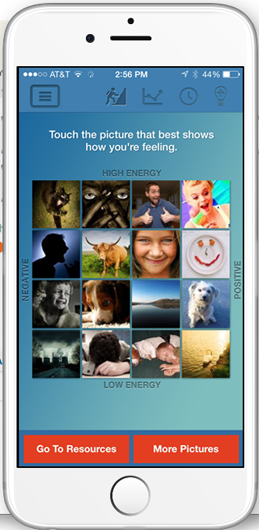 Innovation seems to be slower to come to the mental health field than other areas of medicine, and it’s not just limited to digital health innovation. At a panel at the HxR event in Boston yesterday, a number of experts questioned why that is and shared some aspects of mobile mental health apps they’re developing.
Innovation seems to be slower to come to the mental health field than other areas of medicine, and it’s not just limited to digital health innovation. At a panel at the HxR event in Boston yesterday, a number of experts questioned why that is and shared some aspects of mobile mental health apps they’re developing.
“Over a 10-year period of time, $9.1 billion went into oncology, while 0.9 billion, one tenth, went into biotech for psychiatric disorders,” Brian Mullen, an Innovation Strategy Manager at Brigham Innovation Hub and founder and CEO of Therapeutic Systems, said at the panel. “But we all know that mental health is a much, much bigger problem than all the cancers combined. It’s not even close. Yet we’re not investing any money into innovation to solve that problem. … We have a major innovation gap. And then when we try to do innovation, I would say it’s superficial right now. There are over 3,000 mental health apps, but only about 0.3 percent are evidence-based. We’re taking CBT and putting it into an app and saying ‘Look, I was innovative.’ I don’t know about that.”
Dr. Matt Keener, CEO of BlackBird Health, drew attention to another difference between mental health and other fields: while other fields are diving deeper and deeper into the causes of diseases, mental health is still preoccupied with treating symptoms.
“All of psychiatry, DSM 5, ICD10, you name it, all of it is based on symptoms,” he said. “Medicine isn’t treating wet cough or dry cough anymore, but psychiatry is. Treatment comes once you know what the pathogenesis is. We’re not even there yet. That’s the bad news.”
But the other two speakers both described app-based interventions they’re working on to start to change that status quo. Dr. Kimberly O’Brien, an Assistant Professor at Simmons School of Social Work with a joint appointment at Harvard Medical School as an Instructor in Psychiatry, described a project called Crisis Care being piloted at Boston Children’s hospital.
“Effective communication may be the key to preventing suicide among adolescents,” O’Brien said. “When a suicidal teen is in distress, it’s critical that they’re able to communicate this to a trusting adult, hopefully their parent. And when the parent is told by the teen that they’re having suicidal thoughts, the parent needs to know what to communicate back to their child and who else to communicate with to get help.”
Crisis Care is a two-part app — one app for parents and one for teens — designed to prevent suicide by fostering communication between teens and their parents when they need it most. The teen user customizes their experience, selecting the kinds of resources that they believe would help them through a suicidal episode, including videos, audio files, photos, and meditation and relaxation resources. They also automatically have a “get help now” button that connects them to a suicide prevention hotline or text line.
“The parent mode is different,” O’Brien explained. “The icons are Coach, Listen, or Safety. With Coach, they get the same skills their own child has said has been helpful to them in a suicidal crisis, so they then know how to coach the child. In Listen, they learn how to listen and respond to their suicidal teen, and [in Safety] how to keep their home safe for their suicidal teen when returning from the hospital. And they also have a get help now button so they can access the tools that they need.”
MyStrength CEO Scott Cousino discussed his myStrength app, a mental health app that’s distributed via payer and provider customers including Anthem, Aetna, Humana, and Carolinas Health System.
He said one of the biggest challenges to adapting cognitive behavioral therapy tools to an app is that people interact with apps for shorter periods of time and CBT is designed to be administered in hour-long sessions.
“How do we take a proven model we know works in a face-to-face setting and figure out how we deliver that [in an app]?” he asked. “We incorporate some aspects of Facebook and Pinterest to keep it interesting and engaging. We’re doing a little bit around gamification, but for us we haven’t seen it as effective. … We’ve adopted a simple tool called the photographic affect meter, which a Cornell scientist developed, based on pictures that correspond to mood states. I may not be able to articulate what I’m feeling, but I can pick a picture and guide it down different pathways.”
Despite the innovation gap in mobile mental health, cases like Crisis Care and myStrength show that progress is possible. Another encouraging sign came today from the Robert Wood Johnson Foundation, who announced a $500,000 challenge to design a mood-related ResearchKit app. New Venture Fund and Luminary Labs are also supporting the challenge.
“We think platforms like ResearchKit have the potential to revolutionize how research is conducted, and we're launching this competition to help explore that," RWJF President and CEO Risa Lavizzo-Mourey said in a statement. "We know that mood is one of the keys to health, but much more can be learned about the relationship between mood and the many social and economic factors that affect it, and our health. We're thrilled to help advance research in this field that will help build a Culture of Health in America."













